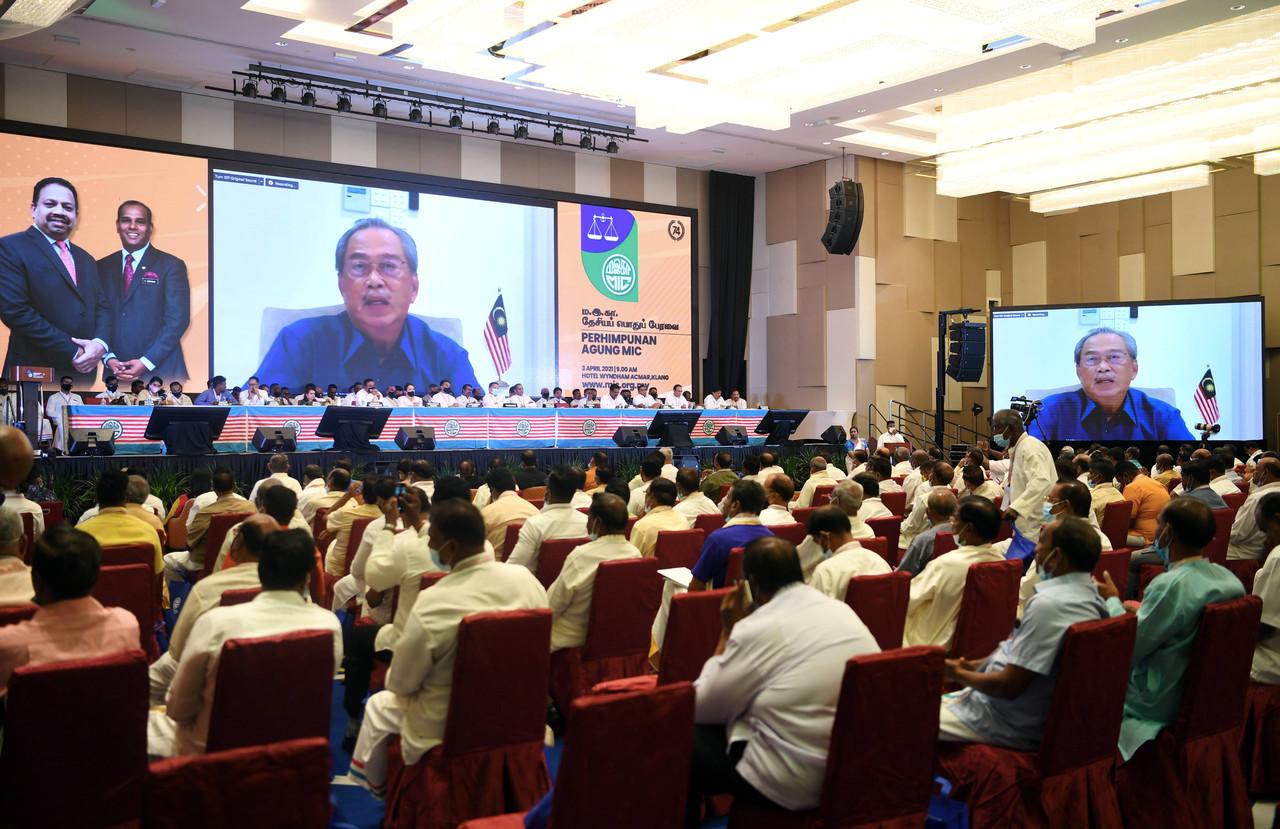MIC sees lifeline in PN as it seeks to leave BN’s master-slave narrative
MIC leaders have been criticising Umno leaders despite the Malay party traditionally playing a 'big brother' role in the Barisan Nasional coalition.
Just In
Delegates at the MIC general assembly yesterday were by and large happy with their party president’s stance in backing Prime Minister Muhyiddin Yassin, despite moves by their coalition partner Umno not to align with the Perikatan Nasional (PN) government.
They told MalaysiaNow that it was time for MIC, which has stayed loyal to Barisan Nasional (BN) together with its “big brother” Umno despite its fall from federal power in 2018, to embrace a new era of coalition politics, which means there can be no single party forming the government on its own.
Rawang MIC chief Mathuraiveran Marimuthu, who is also a member of the party’s Central Working Committee, said Malaysians were now in a better position to make comparisons as they had gone through two governments in a short period of time.
“People have seen a stable government for 60 years and they have also seen 22 months of an unstable government,” he said, referring to the BN rule, and the Pakatan Harapan government after that which collapsed last year.
Mathuraiveran said parties such as MIC should exercise more wisdom in choosing their partners, in order to benefit politically.
“So I think the president made the right move today that we are in support of the prime minister and PN,” he said.
MIC leaders have been criticising Umno leaders, a rare development for a party that is largely seen as subservient to the Malay party.
Umno has long played a “big brother” role in BN, with party positions usually reflecting those in BN.
For example, the Umno president is by default not only the BN chairman but also the prime minister, while other component parties usually occupy lesser positions.
And even as Umno faces questions about its own survival, party leaders have been insisting that it continue to be in the dominant position.
Apart from Umno, BN is now left with only MIC and MCA following a steady exodus of parties in Sarawak as well as Gerakan, in the wake of the coalition’s defeat in 2018.
Still, both MCA and MIC have publicly distanced themselves from many statements by Umno leaders, including their attacks on Muhyiddin.
Many MIC members were particularly impressed with Muhyiddin’s remarks in his special message to party delegates.
The Bersatu president in his message to MIC delegates yesterday had said there could no longer be a dominant party within coalition politics, in stark contrast with Umno whose recent general assembly saw speeches calling for a return to its previous role as a dominant partner in the government.
Mathuraiveran said there is no telling whether Umno is really as strong as their leaders say it is.
“I think they shouldn’t be overconfident. They must go back to the ground and assess their strength to see if they can go solo or not,” he told MalaysiaNow.
Like MCA, MIC has seen its support thin among its traditional vote bank as Indians turned to opposition parties.
Much of this has to do with the fact that MIC leaders were seen subservient to Umno.
But party leaders might see a ray of hope in Muhyiddin, especially in getting a more equal footing in a coalition despite representing a minority community.
And with only a single seat in Parliament, it has very little to lose as it experiments with a different coalition, hoping to survive and become relevant again.
Siva Selan contributed to this report.
Subscribe to our newsletter
To be updated with all the latest news and analyses daily.
